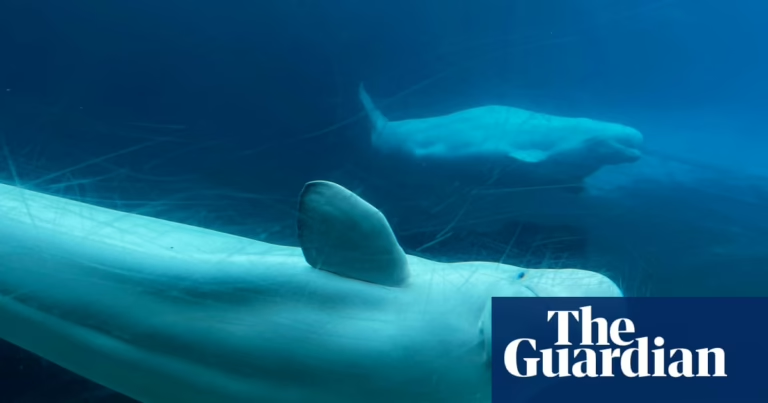The Canadian government has declined Marineland’s petition to export its remaining 30 beluga whales to China, citing serious concerns about the potential for continued mistreatment of the animals.
Located in Niagara Falls, Marineland operates as a theme park, zoo, and aquarium, housing one of the world’s largest collections of captive whales. The facility has faced ongoing criticism over allegations of inadequate living conditions for its marine mammals.
Since 2019, the park has seen the deaths of 20 whales, including 19 belugas and a single orca, according to records obtained by the Canadian Press.
Marineland did not open for the 2024 summer season and has remained silent on media inquiries. However, earlier this year, legal representatives for the park indicated plans to swiftly relocate the remaining whales.
Chimelong Ocean Kingdom in China acknowledged to CBC News that it was exploring the possibility of acquiring the belugas. Nevertheless, Fisheries Minister Joanne Thompson announced on Wednesday that the export request was officially rejected.
Minister Thompson stated, “I could not, in good conscience, authorize an export that would prolong the suffering these belugas have endured.” She emphasized that approval would have condemned the whales to continued captivity and use in public exhibitions.
Expressing her frustration, Thompson added, “Like many Canadians, I am deeply troubled by the fact that these whales have spent their lives confined, leading to a decline in their health.”
The park’s troubles escalated following the 2019 enactment of a federal law prohibiting the sale, breeding, and captivity of dolphins and whales. This legislation effectively barred Marineland from acquiring any new cetaceans.
Since 2020, Ontario provincial inspectors have conducted over 200 visits to Marineland, issuing 33 compliance orders in response to observed violations, according to the Canadian Press.
Despite the controversies, Marineland has maintained that its belugas receive comprehensive medical care and constant supervision.
Ontario Premier Doug Ford recently pledged at a press briefing that the province is committed to ensuring the remaining whales experience the highest quality of life possible. He described the conditions at Marineland as “simply unacceptable.”
Phil Demers, a former whale trainer at Marineland from 2000 to 2012 who has since become a vocal critic, expressed cautious relief that the whales will not be sent to China but warned that their welfare remains precarious.
Demers suggested that the best hope for these animals lies in relocation to a facility governed by stringent animal welfare regulations, with the United States being a likely candidate.
He criticized Canadian authorities for lacking the political will to hold Marineland accountable and to intervene on behalf of the whales since the park’s inception in 1961. Although investigations have been conducted, they have yet to result in the animals being placed under government care-a step Demers insists is necessary.
“The issue has been allowed to linger quietly for years, but now it has reached a critical point,” he remarked.

















